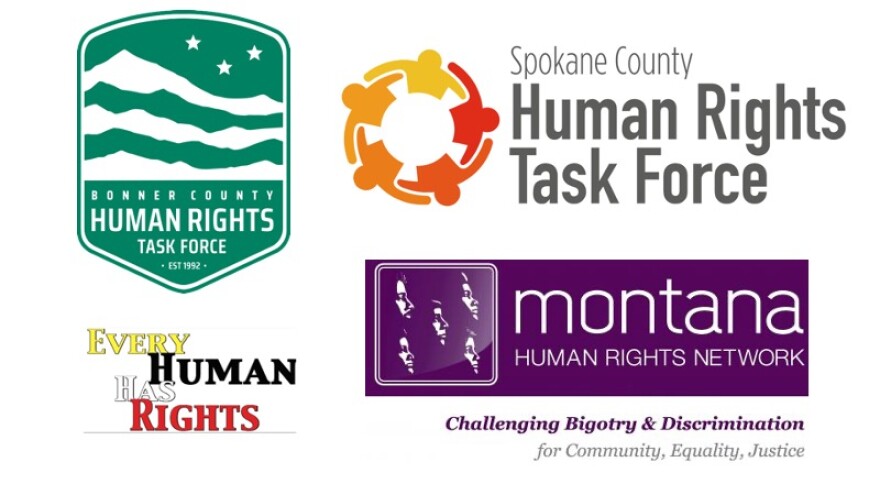Northwest human rights groups received the spotlight last weekend at Gonzaga University’s bi-annual conference on hate studies. This year’s event was held virtually. It focused on work being done to combat discriminatory behavior around the world, including in the Northwest states.The Northwest groups have taken different approaches. The Montana Human Rights Network monitors and researches extremist groups and individuals. Director Travis McAdam says the network uses its intel to help local communities fight off infiltrations.
“We had an extremist conspiracy-fest called the Red Pill Festival that announced it was coming to a small town in western Montana and we worked with a local group of community members in the surrounding counties known as Treasure State Values that wanted to push back against this targeting of their area. So we ended up holding our own event the weekend before the Red Pill Festival in the same town at the same venue," he said.
McAdam said the message was that the Red Pill event was there to divide the community. He says his organization also works to bring together organizations with different interests, for example, helping social justice and environmental groups find where their areas of interest intersect.
In Spokane, the county Human Rights Task Force is working to create an annual hate report. Director Dean Lynch says police compile reports of hate crimes, but he believes those represent only a small percentage of malicious activities and don’t give a true story of what’s going on.
"We develop reports of crimes and incidents which can be shared with the public and our partners. We use collected information to support and coordinate educational programmatic and awareness activities. So, again, there’s the importance of collaboration," he said.
Lynch says the task force solicits information from people in the community. They can fill out a hate report at the organization’s website.
“The reporter can be a victim. It can be a witness. Or it could be a third party. We want the address of where the incident occurred. What is the setting where it occurred? Did it happen to occur on the temple? Was it outside of a bar? Or was it just leafletting in a neighborhood?” he said.
He says people can file anonymously. The information is entered into the task force database and will be part of its annual hate report.
There are also organizations that promote human rights in Kootenai and Bonner counties in north Idaho. Brenda Hammond from the Bonner County group in Sandpoint says her organization supports victims of discrimination and harassment. And she says it works to educate the community, especially when it comes to learning the views of local political candidates.
“We did this in the last two elections by sending specific human rights-related questions to all the candidates and then making their responses public so that people can recognize their ideology as well as the real and not the stated agenda of the person they are voting for," she said.
Hammond says she tries to follow the advice of Morris Dees, formerly of the Southern Poverty Law Center, given at a conference in Spokane several years ago.
“He told the group of human rights activists that were there that we were speaking to the wrong people. He told us that we needed to speak less from pulpits and lectures and to speak to people across their kitchen tables. He said that we need to listen as well as speak and to recognize with everyone our common humanity. We need to be examples of what we believe, that each human being is worthy of dignity and respect," Hammond said.
Even when you disagree strongly with what they believe.


